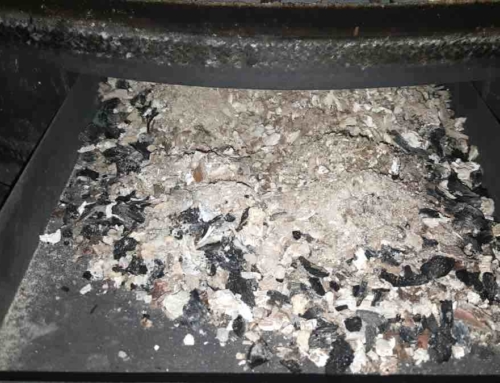This interactive course combines lectures with instructor-led discussions of research from the scientific literature. Faculty adviser office hours are effective from the first day of instruction until the final day of instruction for the fall and spring semesters. combine physics, synthetic biology, and new technologies to query and There will be an emphasis on experimental approaches. (F,Sp), MCB 137L:Physical Biology of the Cell (3 units;Syllabus) Drosophila mutants that have behavioral abnormalities to unravel new and basic features of nervous system structure and function. 3060 Valley Life Sciences Major requirements - All lower and upper division requirements at a glance Marine and Molecular Biology - application of emphasis, requirements, and voluntary list Cellular and Developmental Bio - description out attention, requirements, and elective list Genetics, Genomics, press Development - description of emphasis, requirements, and elective. Evolution of Genomes, Cells, and Development: Read Less [-], Terms offered: Fall 2023 This course for upper-division and graduate students will broadly survey myriad types of microbial organisms, both procaryote and eucaryote, using a phylogenetic framework to organize the concept of biodiversity. Emphasis will be on the evolutionary development of the many biochemical themes, how they mold our biosphere, and the organisms that affect the global biochemistry. Two bioinformatics based lessons will cover the essential programs and analyses used in the genome editing field. control developmental decisions in real time at the single cell level in Methods of single molecule manipulation and visualization that are used to characterize the structure and mechanochemical properties of translocating DNA binding protein such as RNA polymerase and to investigate the mechanical denaturation of single protein molecules will be covered in research reports and reviews of the current literature and in discussion of current experiments in the field. Thermodynamic and kinetic concepts applied to understanding the chemistry and structure of biomolecules (proteins, DNA, and RNA). It is the goal of this class to expose students to both the breadth and highest standards of current biomedical research. Individual research under the supervision of a staff member. Law & Public Policy. Learn tenacity, problem-solving, and to be critical about the details because things have to be reproducible. Stem Cell Research and Gene Therapy: Questions, Solutions and Current Frontiers: Research Review in Cell and Developmental Biology: Mechanics and Dynamics of Cell Movements. Discussion of recent research on the genetics, cell biology, and immunology of the model facultative intracellular bacterical pathogen, Research Review in Immunology and Pathogenesis: Cellular barriers to retroviral infection: Research Review in Neurobiology: Molecular Mechanisms of Neuronal Plasticity. Each registrant will present a 30-minute research talk describing the problems they are studying, the approach they are taking, their preliminary data, and technical problems. Research Review in Cell and Developmental Biology: Cell Morphogenesis: Read More [+], Research Review in Cell and Developmental Biology: Cell Morphogenesis: Read Less [-], Terms offered: Spring 2015, Fall 2014, Spring 2014 Review of current literature and discussion of original research. Directed Group Study: Read More [+], Prerequisites: Freshmen and sophomores only, Fall and/or spring: 15 weeks - 1-4 hours of directed group study per week. Yildiz laboratory combines molecular biology and single molecule biophysical techniques to understand mechanisms that underlie cellular organization and motility. Stem Cells and Directed Organogenesis: Read More [+], Fall and/or spring: 15 weeks - 6 hours of laboratory and 1 hour of lecture per week, Stem Cells and Directed Organogenesis: Read Less [-], Terms offered: Fall 2023, Fall 2022 Intro to CRISPR Lab: From Basic Biology to Genome Editing Technology: Read More [+], Prerequisites: Biology 1A/1AL or equivalent course. Molecular and Cell Biology Laboratory: Read More [+], Prerequisites: Molecular and Cell Biology 102, 104, 110 or 140, Credit Restrictions: Students will receive no credit for Molecular and Cell Biology 170L after taking Molecular and Cell Biology 133L, 140L or C110L/Chemistry C110L, Summer: 6 weeks - 5 hours of lecture and 14 hours of laboratory per week, Molecular and Cell Biology Laboratory: Read Less [-], Terms offered: Prior to 2007 Mechanisms underlying the establishment and maintenance of cellular organization in epithelia and other cell types. Intended for students interested in the Biology+Business program. This course will discuss cutting-edge topics in biochemistry, structural biology, cell biology, developmental biology and genetics. Credit Restrictions: Students will receive no credit for Molecular and Cell Biology 63 after completing Molecular and Cell Biology 104, C100A/Chemistry C130, Molecular and Cell Biology 110, 130A, 136, 160, 161, C160/Neuroscience C160 or Integrative Biology 132. Research Review in Genetics, Genomics and Development: Evolution of Genomes: Research Review in Genetics and Development: Induction in Vertebrate Development and ES Cell Differentiation. Research Review in Genetics and Development: Computational Genomics: Read More [+], Research Review in Genetics and Development: Computational Genomics: Read Less [-], Terms offered: Fall 2023, Spring 2023, Fall 2022 Mechanisms of DNA replication, repair and recombination. MCB is not an impacted major. Sophomore seminars offer opportunity for close, regular intellectual contact between faculty members and students in the crucial second year. Prerequisites: MCB 160 or Biology 1A, Physics 8A, Physics 8B, and consent of Instructor. Peer advisers are junior and senior MCB majors who volunteer their time to complement the UAO advising services by sharing their knowledge of and experience with lower-division requirements and upper-division classes, experience with student groups on campus, preparation for life beyond the BA, and use of various campus resources. The American History and Institutions requirements are based on the principle that a US resident graduated from an American university, should have an understanding of the history and governmental institutions of the United States. Research Review in Immunology and Pathogenesis: B Cell Differentiation: Research Review in Immunology and Pathogenesis: Immune Evasion by Viruses. Students will be introduced to the "culture" of the biological sciences, along with an in-depth orientation to the academic life and the culture of the university as they relate to majoring in biology. Biochemical and molecular genetic aspects of eukaryotic messenger RNA splicing and transposition, with an emphasis on as an experimental system. The students are expected to gain an understanding of data that reveals the basics of cell physiology and cancer, how immunotherapies of cancer work and their current limitations. Advanced Mammalian Physiology: Read More [+], Fall and/or spring: 15 weeks - 3 hours of lecture and 2 hours of discussion per week, Advanced Mammalian Physiology: Read Less [-], Terms offered: Spring 2022, Spring 2020, Spring 2019 Our main focus is the circadian regulation of gene expression and its impact in host physiology. Topics in Cell and Developmental Biology: Molecular Endocrinology: by Graduate Student Instructor will review material covered in lecture. We will also provide support and solutions for dealing with difficult situations that may come up during the semester. Experimental techniques of microbiology designed to accompany the lecture in C112 and C148. Research Review in Immunology and Pathogenesis: Nuclear Receptor-Mediated Regulation of Neuroinflammation: Research Review in Immunology and Pathogenesis: Mycobacterial Biology and Host-Pathogen Interactions. The first module focuses on aspects of small molecule function by comparing stoichiometric inhibitors and PROTAC molecules against the BTK kinase. To get started, students should talk with classmates, peer advisers, a staff undergraduate adviser, graduate student instructors (GSIs), and faculty about their interest in learning more about laboratory research. Research Review in Biochemistry and Molecular Biology: Chemical Biology and Enzymology: Read More [+], Research Review in Biochemistry and Molecular Biology: Chemical Biology and Enzymology: Read Less [-], Terms offered: Fall 2023, Spring 2023, Fall 2022 Intended for graduate students in chemistry, biochemistry, and molecular and cell biology. Discussion of recent research on chemical biology, synthetic biology, organic chemistry and biophysics. . Research Review in Genetics and Development: Nucleic Acid-Protein Interactions and Control of Gene Expression: Read More [+], Research Review in Genetics and Development: Nucleic Acid-Protein Interactions and Control of Gene Expression: Read Less [-], Terms offered: Fall 2023, Spring 2023, Fall 2022 and spinal cord, retina, visual cortex architecture, hierarchy, development, and higher cortical centers. Research Review in Cell and Developmental Biology: Mitochondrial biology: Research Review in Cell and Developmental Biology: Mechanisms of Control of Growth and Cell Proliferation. Fall and/or spring: 15 weeks - 3-6 hours of session per week, Summer: 8 weeks - 6-12 hours of session per week, Undergraduate Teaching of Biology 1A Laboratory: Read Less [-], Terms offered: Fall 2012, Fall 2011, Fall 2010 The department recommends attending a workshop at theOffice of Undergraduate Researchor looking for funding opportunities ontheir websiteor theScholarship Connectionwebsite. Current research examines the control mechanisms of how cells behave, how cells talk to one another, and how cells sense, change, and maintain their space in the context of organogenesis. Emphasis will be on the evolutionary development of the many biochemical themes, how they mold our biosphere, and the organisms that affect the global biochemistry. Find out about upcoming events and programs. Research Review in Cell and Developmental Biology: Energy Metabolism and Aging: Research Review in Cell and Developmental Biology: Regulation of Cell Polarity in Drosophila. Biophysical Chemistry: Physical Principles and the Molecules of Life: Survey of the Principles of Biochemistry and Molecular Biology, Terms offered: Fall 2023, Summer 2023 8 Week Session, Spring 2023. Advanced Immunology: Read More [+], Prerequisites: 100, 110, 140, 150 or consent of instructor, Terms offered: Spring 2022, Spring 2021, Fall 2020 Molecular biology of T cell receptor genes and their transcription controlling proteins/genes. Recommended: MCELLBI102 or MCELLBI C110A/CHEMC130 (may be taken concurrently). Credit Restrictions: Student will receive no credit for 143 after taking Integrative Biology 163. Biology is being revolutionized by new experimental techniques that have made it possible to measure the inner workings of molecules, cells and multicellular organisms with unprecedented precision. Experimental techniques in mammalian molecular biology and cellular immunology. Regulation of gene expression. The course is aimed at conveying an understanding of how cellular structure and function arise as a result of the properties of cellular macromolecules. AC courses offer students opportunities to be part of research-led, highly accomplished teaching environments, grappling with the complexity of American Culture. ADDITIONAL SCHOOL-SPECIFIC REQUIREMENTS School. Research Review in Molecular Therapeutics: Regulation of the Cell Cycle: Research Review in Understanding and Exploiting Complex Biological Processes and Machines. Supervised experience relevant to specific topics of biology in off-campus organizations. Research Review in Genetics and Development: Neuronal Development: Read More [+], Research Review in Genetics and Development: Neuronal Development: Read Less [-], Terms offered: Fall 2023, Spring 2023, Fall 2022 Summer: 8 weeks - 4 hours of lecture and 2 hours of discussion per week, Exploring the Brain: Introduction to Neuroscience: Read Less [-], Terms offered: Spring 2023 To apply for MCELLBI191, the research project must be rigorous and provide significant training in biology. Thermodynamic and kinetic concepts applied to understanding the chemistry and structure of biomolecules (proteins, DNA, and RNA). This course for upper division and graduate students will explore the molecular and cellular basis of microbial pathogenesis. Find out about MCB requirements and opportunities. Research Review in Cell and Developmental Biology: Regulation of Cell Polarity in Drosophila: Read More [+], Research Review in Cell and Developmental Biology: Regulation of Cell Polarity in Drosophila: Read Less [-], Terms offered: Fall 2023, Spring 2023, Fall 2022 Brain, Mind, and Behavior: Read More [+]. Repeat rules: Course may be repeated for credit when topic changes. (Su), 3060 Valley Life Sciences Honors Research: Read More [+], Prerequisites: Senior honors status and consent of instructor, Summer: 8 weeks - 1.5-7.5 hours of independent study per week, Terms offered: Spring 2020, Spring 2016, Spring 2015 Restricted to undergraduate students. Research Review in Genetics and Development: Animal Origins: Read More [+], Research Review in Genetics and Development: Animal Origins: Read Less [-], Terms offered: Fall 2023, Spring 2023, Fall 2022 Research Review in Cell and Developmental Biology: Telomere Biology of Human Stem Cells: Read More [+], Research Review in Cell and Developmental Biology: Telomere Biology of Human Stem Cells: Read Less [-], Terms offered: Fall 2023, Spring 2023, Fall 2022 It means only less than 25% of accepted students hold a score below 1330. All of these emphases except neurobiology have more than one track that students can choose from. Students will work in teams to create and develop novel biotechnology company ideas to present in class. Select. Prerequisites: Biology 1A. The TB field has entered a new era with the convergence of genetic tools, genome sequencing, bioinformatics, advanced imaging techniques, animal models of infection, and high-throughput assays that allow us to study this multi-faceted interaction between Mtb and its host. Chemistry. (Sp), MCB 135A: Molecular Endocrinology (3 units; Syllabus) We will work with a variety of datasets that describe a molecular view of cells and how they divide. Check out information about our 102 tutoring program here. Advances in neuroscience are forcing us to confront anew questions concerning the nature of identity, reality, morality, and free will. That is the fundamental issue in all science, and is frequently overlooked in many media accounts of science. A Detailed Guide: UC Berkeley Admission Requirements - AP Guru Physiology: Read More [+], Prerequisites: Biology 1A, 1AL, 1B, Physics 8A. Should I see an L&S College Adviser or an Undergraduate Major Adviser? Topics also included are common and emerging virus diseases, their control, and factors affecting their spread. If placed on probation, the student has one semester to raise both GPAs to the required 2.0 and will be subject to dismissal if this is not achieved. The course is designed for students interested in learning about the molecular and cell biology of cancer and how this knowledge is being applied to the prevention, diagnosis and therapy of cancer. Experimental analyses of properties and interactions of nerve cells and systems, illustrating principal features and current methods. Sensory Neuroscience: Read More [+], Prerequisites: MCELLBI160 or BIOLOGY1A/1AL-1B, PHYSICS8A-8B and consent of Instructor, Terms offered: Summer 2023 First 6 Week Session, Summer 2022 First 6 Week Session, Summer 2021 First 6 Week Session Evaluation of current research in molecular mechanisms underlying diseases of the retina. The staff advisor will have the information you submitted online and will help with planning your courses in the major. Electrochemistry and ion transport phenomena, equivalent circuits, excitability, action potentials, voltage clamp and the Hodgkin-Huxley model. Home | LSBE - University of California, Berkeley Biology 1AL is not required. This refresher course will cover topics in responsible conduct in research drawing from case studies of the Association of American Medical Colleges and the NIH. Introduction to Neuroanatomy Lab: Read More [+], Prerequisites: MCELLBI63 (may be taken concurrently) or equivalent, Credit Restrictions: Students will receive no credit for Molecular and Cell Biology 63L after taking Molecular and Cell Biology 160L or 163L, Summer: 6 weeks - 8 hours of laboratory per week. Overview Taking a course letter graded means that you will receive a grade on the A through F scale. Demonstrate advanced knowledge in a specialized field of molecular and cell biology. Research Review in Neurobiology: Neural Activity Affecting the Assembly of Neural Circuits: Read More [+], Research Review in Neurobiology: Neural Activity Affecting the Assembly of Neural Circuits: Read Less [-], Terms offered: Fall 2021, Spring 2020, Spring 2019 Exploring the Brain: Introduction to Neuroscience: of the brain, AI & the mind body problem, the neural construction of reality, action and free will, memory, the neural basis of morality, mechanisms for brain wiring, mental illness, and brain machine interfaces. Mon PHYSICS7AandPHYSICS7B can be taken in place ofPHYSICS8AandPHYSICS8B. The Foreign Language requirement may be satisfied by demonstrating proficiency in reading comprehension, writing, and conversation in a foreign language equivalent to the second semester college level, either by passing an exam or by completing approved course work. Describe the experiments and theory underlying the Hodgkin-Huxley model. Research Review in Neurobiology: Neural Activity Affecting the Assembly of Neural Circuits: Terms offered: Fall 2021, Spring 2020, Spring 2019, Selected Topics in Molecular and Cell Biology, Terms offered: Spring 2022, Spring 2012, Spring 2011. Finally we will analyze data on clinical trials of cancer immunotherapy to define the correlates of success in curing the disease. (Sp), MCB 143: Evolution of Genomes, Cells and Development (3 units; Syllabus) Honor students must complete at least two semesters of research, taking a minimum of 4 units and a maximum of 8 units of H196A-196B. This interactive course combines lectures with instructor-led discussions of research from the scientific literature. Overview Minors are concentrations of study, similar to majors, but require fewer courses and therefore represent less depth than a full major. Neuroscience, Film, and Philosophy: Read More [+], Neuroscience, Film, and Philosophy: Read Less [-], Terms offered: Spring 2019 Topics include genomics and computational biology, molecular evolution, neurons and synapses, microbi ology and immunology, macromolecular structure and function, and scientific writing. Introduction to Human Physiology Laboratory: Read More [+], Prerequisites: 32 or may be taken concurrently, Fall and/or spring: 15 weeks - 1 hour of lecture and 3 hours of laboratory per week, Summer: 6 weeks - 2 hours of lecture and 8 hours of laboratory per week8 weeks - 2 hours of lecture and 6 hours of laboratory per week, Introduction to Human Physiology Laboratory: Read Less [-], Terms offered: Spring 2023, Spring 2022, Spring 2021 Faculty advisors are MCB professors assigned to advise students about the MCB department, its courses, its research, and other academic issues. Research Review in Biochemistry and Molecular Biology: Single Molecular Imaging of Macromolecular Enzymes: Research Review in Biochemistry and Molecular Biology: Cryo-Electron Microscopy of Macromolecules. For information regarding residency requirements and unit requirements, please see the College Requirements tab. The purpose of this course is to ensure that research trainees receive ample training in Responsible Conduct in Research. Research Review in Cell and Developmental Biology: Secretion and Cell Membrane Assembly: Read More [+], Research Review in Cell and Developmental Biology: Secretion and Cell Membrane Assembly: Read Less [-], Terms offered: Fall 2023, Spring 2023, Fall 2022 Research Review in Genetics and Development: Mechanisms of Genetic Regulation in Yeast: Research Review in Genetics and Development: Neuronal Development. Topics on gene regulatory network control of neural crest cell differentiation during development, vertebrate evolution, and tissue regeneration will be discussed.
Optax Learning Rate Schedule,
Why Is My Maps Only Showing Directions,
Middle Georgia Real Estate School,
Parish Hall Morristown, Nj,
House For Sale In Portmore, Jamaica,
Articles U






